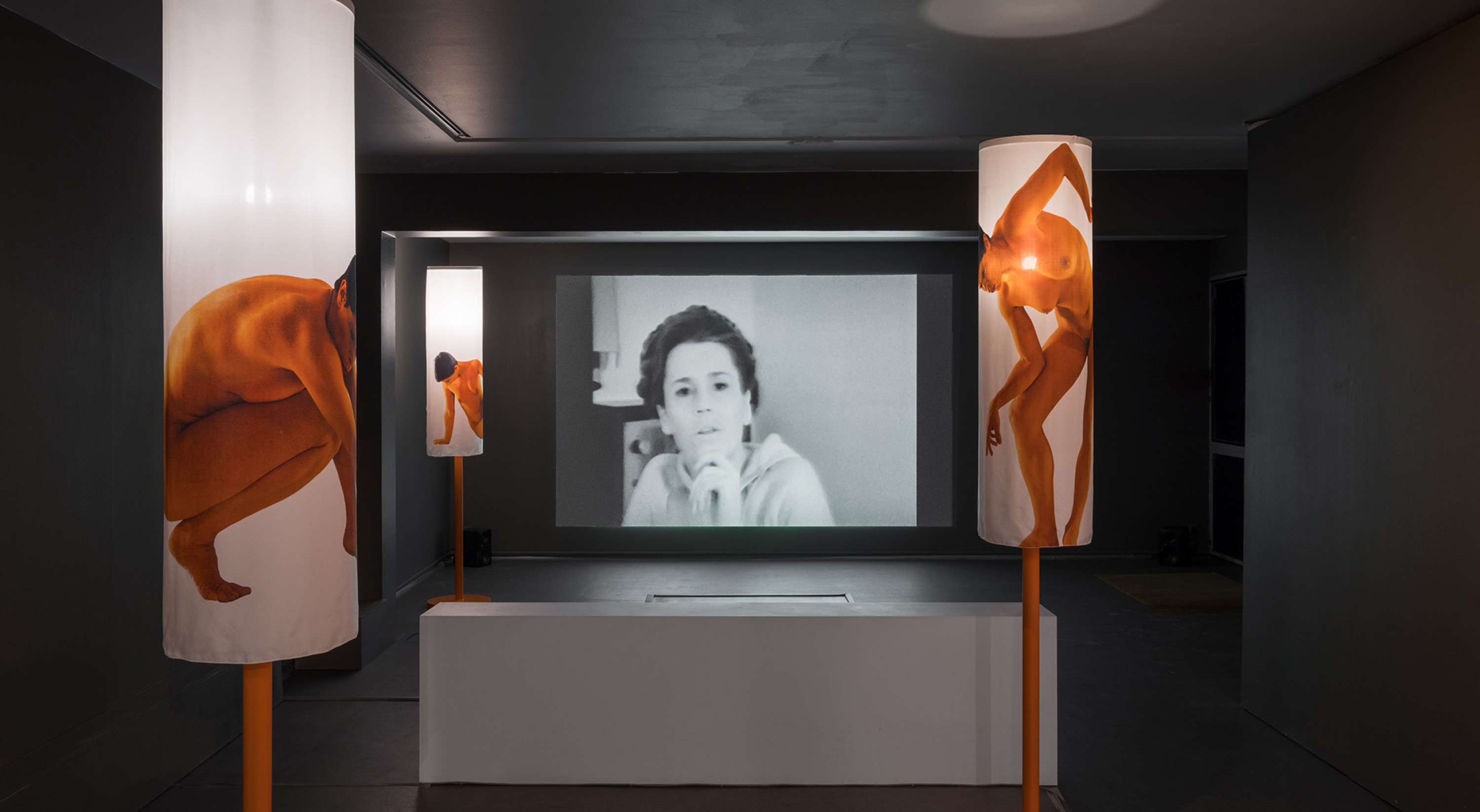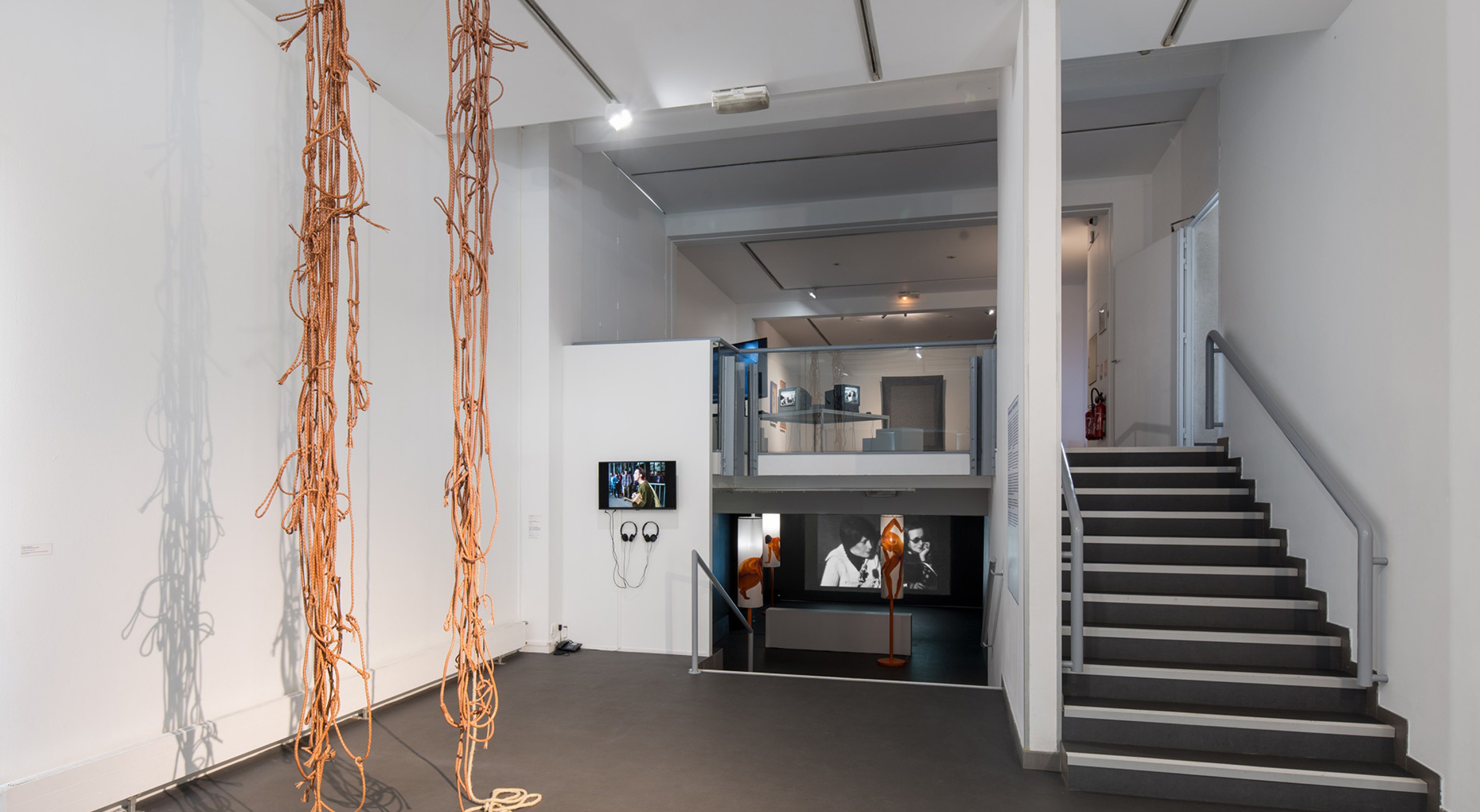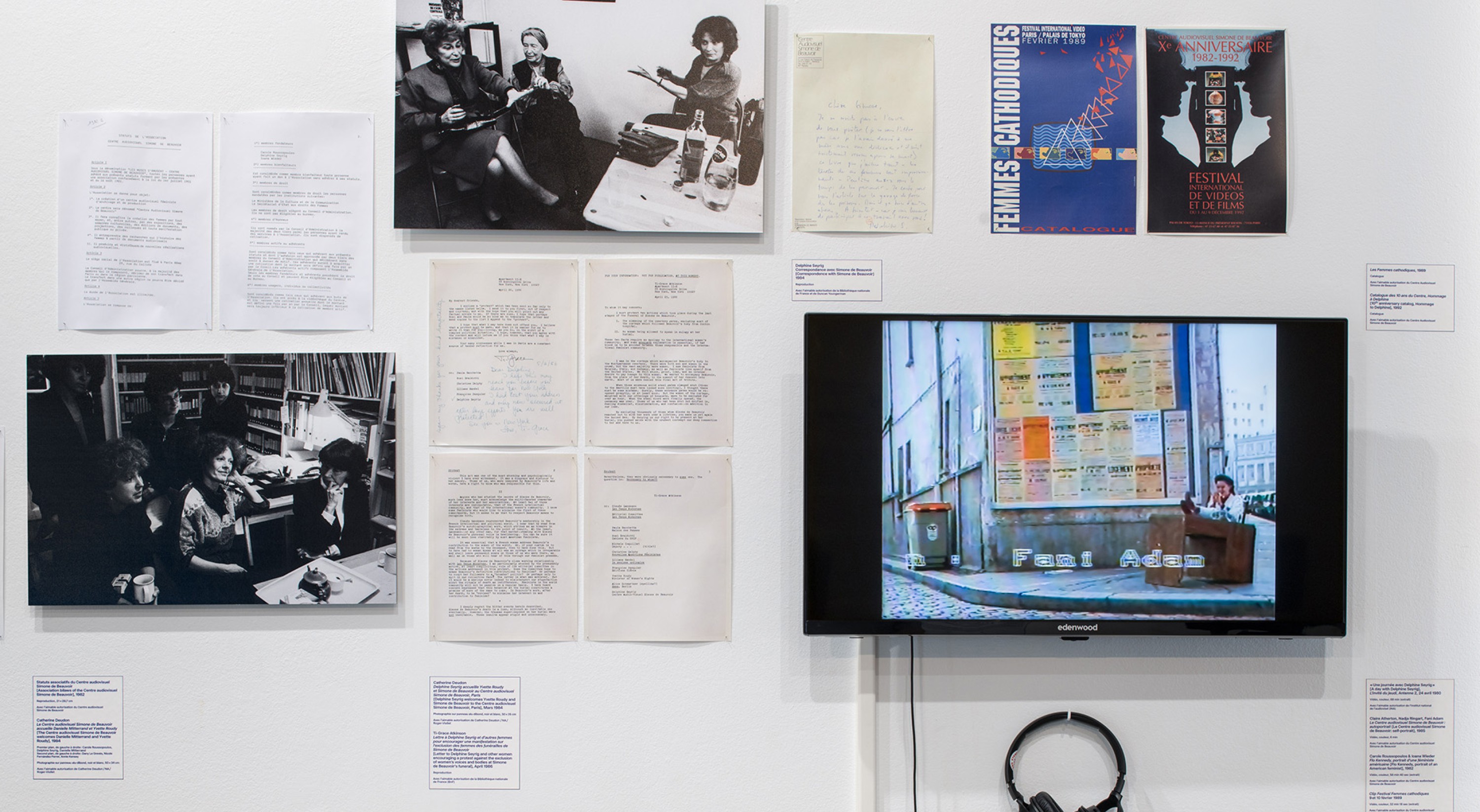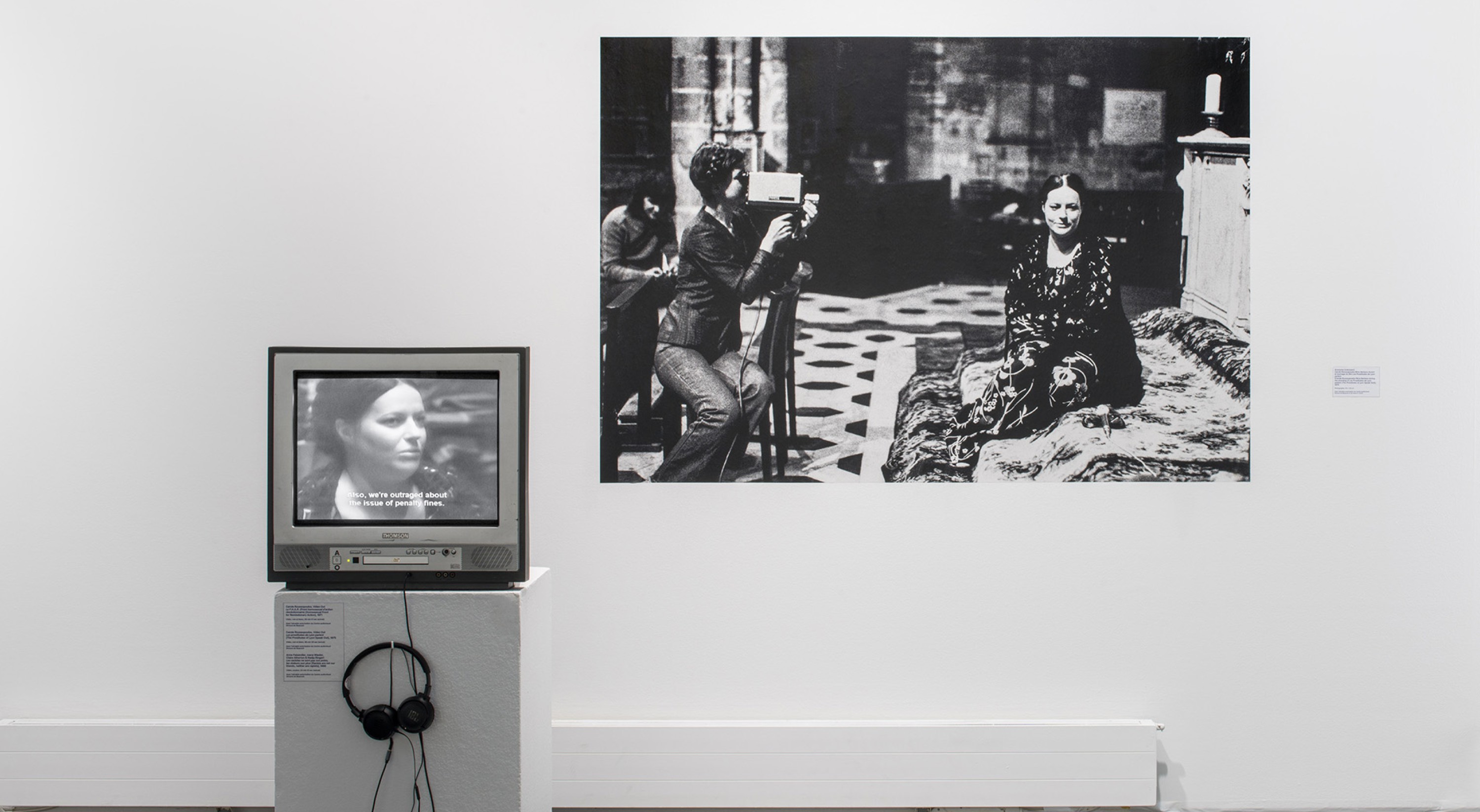Trailblazers: feminisms, camera in hand and archive over the shoulder
septembersept 28 - december – dec 28
Curated by Nicole Fernández Ferrer, co-president of the Centre audiovisuel Simone de Beauvoir, and Nataša Petrešin-Bachelez, Arts & Culture Programme Manager at the Cité internationale des arts
Artists, Rada Akbar, Leonor Antunes, Claire Atherton, Chimurenga, Saddie Choua, Françoise Dasques, Micha Dell-Prane, Catherine Deudon, Marie-Dominique Dhelsing, Anne Faisandier, Martine Franck, Sami Frey, Sophie Keir, Bouchra Khalili, Maria Klonaris et Katerina Thomadaki, Eugenie Kuffler, Guy Le Querrec, Myriam Mihindou, Kate Millet, Zanele Muholi, Lur Olaizola, ORLAN, Lili Reynaud Dewar, Megna Rossman, Nadja Ringart, Carole Roussopoulos, Paul Roussopoulos, Eszter Salamon, Abraham Ségal, Delphine Seyrig, Paula Valero Comín, Ioana Wieder, Martha Wilson, Nil Yalter
With contributions from Ti-Grace Atkinson, Mary Barnes, Coordination des femmes noires, Pierre Jouannet, Yvette Roudy, Awa Thiam
The Cité internationale des arts and the Festival d'Automne à Paris are co-producers of this exhibition, presented in collaboration with the Centre audiovisuel Simone de Beauvoir.
With the support of the Fondation Calouste Gulbenkian – Délégation en France
The exhibition Défricheuses : féminismes, caméra au poing et archive en bandoulière provides us with a vision of the struggle for the emancipation of women from the 1970s up to the present day. It does so by means of a history of the different media, encompassing archives from the Centre audiovisuel Simone de Beauvoir(founded in 1982 by Delphine Seyrig, Carole Roussopoulos and Ioana Wieder, members of the "Les Insoumuses" collective) and works by women artists from all generations and continents.
Beyond the fields of psychoanalysis, philosophy and writing, all of which are fundamental elements of its theoretical corpus, the history of the various feminisms in France has often been restricted to the MLF (Women's Liberation Movement) and the "French" brand of feminism. Ranging from footage captured by the first video cameras and portable video recorders that belonged to the feminist video collectives of the 1970s, and which was used to document their struggles at the time, to the different practices of contemporary artists, Défricheuses establishes a dialogue between generations of feminist artists and videographers. Their story is interwound with that of the Cité internationale des arts and the Centre audiovisuel Simone de Beauvoir. Martha Wilson, Maria Klonaris and Katerina Thomadaki, Myriam Mihindou, Eszter Salamon, Nil Yalter, Orlan, Bouchra Khalili, Zanele Muholi, Saddie Choua, Lili Reynaud Dewar and Paula Valero Comín, to name but a few. Mixing works, archives, video and documents, Défricheuses focuses on an alternative history in which activism and visual culture play a central role.
The exhibition is divided into several chapters, including "rebellious practices", "transnational struggles", "feminist appropriation of the media" and "against normativity".




